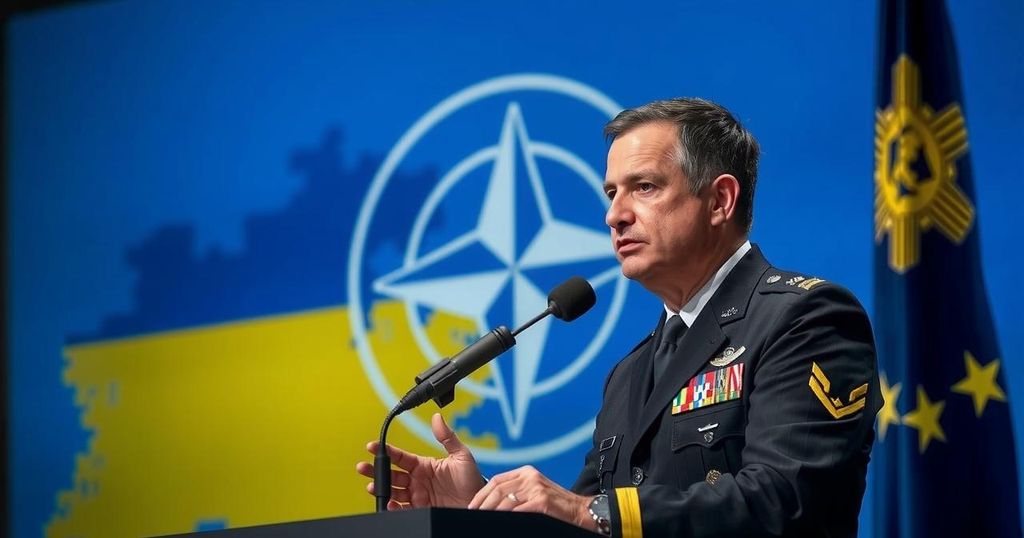NATO Chief Warns Trump: Weak Ukraine Peace Deal Could Empower Adversaries

NATO Chief Mark Rutte warns President-elect Trump that a weak peace deal for Ukraine could strengthen adversaries such as China, Iran, and North Korea. Rutte expressed that inadequate support would lead to a serious global security threat, as these nations could collaborate more closely in exploiting the situation. He emphasized that maintaining a strong stance for Ukraine is crucial for European and U.S. security.
The Secretary-General of NATO, Mark Rutte, has issued a cautionary statement to President-elect Donald Trump regarding the potential repercussions of a pressured peace settlement in Ukraine. Rutte articulated to The Financial Times that enforcing a subpar peace agreement with Russia would pose a significant threat not only to European stability but also to global security, as it could invigorate authoritarian regimes, including those led by Vladimir Putin, Xi Jinping, Kim Jong-un, and the leaders of Iran. He remarked that these nations have been increasingly collaborating in military and economic spheres, and such an inadequate resolution would provide them with an opportune moment to exploit the circumstances.
Rutte stated, “We cannot have a situation where we have Kim Jong-un and the Russian leader and Xi Jinping and Iran high-fiving because we came to a deal which is not good for Ukraine.” He underscored the idea that merely attaining a resolution without substantial gains for Ukraine would enhance security threats to both Europe and the United States. His comments followed a meeting on 23 November, when Trump and his foreign policy advisors deliberated these pressing concerns.
On 2 December, UK Prime Minister Keir Starmer acknowledged that the ongoing Russo-Ukrainian conflict is likely to culminate in a negotiated settlement, coinciding with the announcement of a new military aid package for Ukraine from President Joe Biden. Conversely, advisors to Trump claim that the conflict is primarily a European dilemma and propose that U.S. foreign policy should prioritize issues concerning China and Iran.
The geopolitical climate surrounding Ukraine remains tense, particularly after the invasion by Russia and the ongoing conflict that has spanned years. NATO’s position is critical, as it seeks to maintain collective security and support member nations, particularly in Eastern Europe. The recent remarks from NATO’s Secretary General come at a time when the United States is navigating a transition of power, raising concerns about the implications for international relations and the balance of power among authoritarian regimes. With areas of contention in places like North Korea and Iran gaining traction alongside Ukraine, the stability of European and global security is a paramount concern.
In conclusion, NATO Secretary-General Mark Rutte’s warnings to President Trump highlight the intricate relationship between Ukraine’s peace negotiations and broader geopolitical stability. The emphasis on supporting Ukraine effectively to prevent the emboldenment of authoritarian regimes serves as a critical reminder of the interconnected nature of current global threats. Failure to uphold supportive agreements not only undermines Ukrainian sovereignty but also paves the way for increased challenges from nations like Russia, China, Iran, and North Korea. It is essential for Western leaders to carefully consider these implications as they navigate foreign policy strategies.
Original Source: euromaidanpress.com





